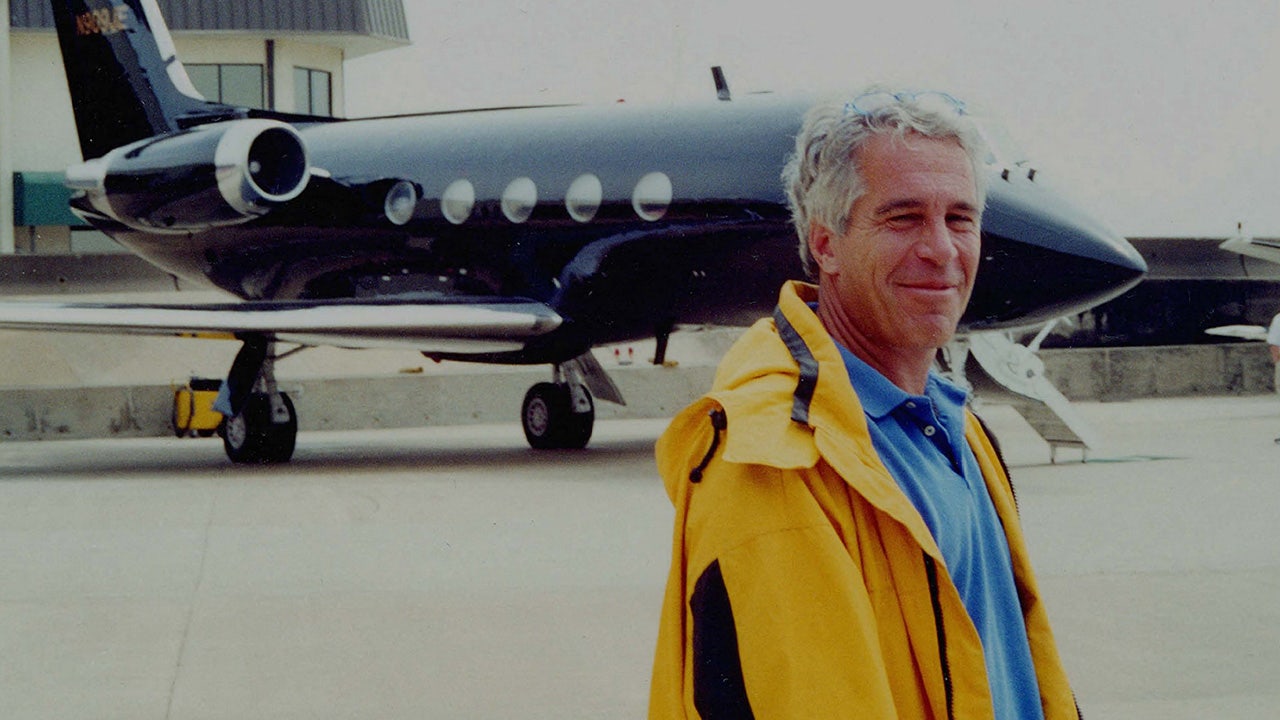Every now and again, a company comes from out of nowhere and throws a cat among the pigeons. These disruptors have the potential to transform an area of our everyday lives and upend their whole sector – creating an incredible investment opportunity in the process.
Chinese AI upstart DeepSeek provided a perfect reminder of this last week. A fortnight ago, few people had heard of it – and no wonder. It is a small Chinese technology start-up with just a couple of hundred employees and was formed little more than two years ago.
By Monday, it had knocked a trillion dollars off the value of the world's biggest technology companies because of the potential it displayed for challenging their supremacy.
DeepSeek appears to have created an AI chatbot tool, which can answer users' questions, solve mathematical and coding problems and even reason, but at a fraction of the cost that was previously thought possible.
Global investors were left reeling, and although some of the losses have been recovered, financial markets are still catching up with what this means for the technology sector and our lives in general.
After all, AI looks set to be the trend that overhauls our lives, from the way we communicate, travel and make goods, to the jobs that are available. If the cost of it – and therefore the barrier to entry – is much lower than previously thought, this has huge implications.
It is not possible to invest in DeepSeek as it is not listed on a stock exchange. However, there are scores of fund managers who use their expertise to seek out such disruptors in technology as well as all other sectors.
Wealth & Personal Finance has spoken to fund managers who are finding these innovative companies that could be set to transform everything from flood prevention to policing.
Investors could make magnificent returns in firms set to transform space technology
Many of these firms are still in their infancy – and that is both the opportunity and the risk for investors. Early investors stand a chance to make magnificent returns if they fulfil their potential, or lose money if they do not succeed or are superseded by something else.
As a result, as always, you should make sure these investments fit with your appetite for risk before getting stuck in. Holding a range of investments is always key to ensuring you're not overexposed if one doesn't work out. You may also prefer to buy a fund or funds containing potential disruptors rather than the individual companies to spread your risk.
If you are a more hands-off investor, rest assured that if these companies do prove their worth, they will end up in the passive index funds when they start to scale up. After all, even companies such as Microsoft, Amazon and Facebook (now Meta) started life as small disruptive start-ups.
One final thought before we reveal the spoils: lots of investment trusts that invest in such early-stage businesses are trading on massive discounts.
In other words, the shares can be bought for considerably less than they are worth as measured by the value of their underlying holdings. One reason for this is that their value for investors is in the profits they could yield not today but sometime in the future.
And the value of those future profits is considerably lower while interest rates and inflation are still high. If you think this trend could reverse, now could represent an excellent opportunity to buy at a huge discount. But there is no guarantee that the discount will close.
It is no surprise that some of the mind-boggling disruptors are in the realm of space.
Mark Boggett is the chief executive of Seraphim Space, a firm that invests exclusively in space.
'Lyma designs clinical-grade skincare lasers that can reduce the effects of ageing on skin
One company in the portfolio is Hubble, which has developed the tools to connect to Bluetooth from space. Bluetooth is a technology that allows users to exchange data between two devices.
It is commonly used for wireless headphones, computer mice and keyboards, but tends to work only over small distances. If it can connect over thousands of miles through space, it can have all sorts of other uses.
'Some people use Airtags that use GPS technology so that they can track their luggage or to help them find their keys,' says Boggett. 'But these are still relatively expensive – around £20-£30. But Bluetooth technology is much cheaper – closer to £1 – and easy to install. So it could be inserted, for example, in your sunglasses so that you don't lose them.
'Or it could be put in parcels so that they don't get lost – especially useful when deliveries are made by drones and you want to know that they have reached the right destination. They could also be used to track cattle or freight. There are so many uses.'
Another potential gamechanger is AST, which is a company that has created and launched cell towers in space. These will be able to connect to ordinary mobile phones around the world with no additional technology required.
As well as providing better phone reception for people around the globe, it could also help those in developing countries with old handsets to get better connection.
A third is SatVu, a UK-developed company that provides a high resolution thermal data of the globe from space. 'It is so accurate that it can tell if there are people in a building, or if an oil rig is working or if a water source is contaminated,' says Boggett. 'It can also show where heat is being lost from buildings, which can be used to improve energy efficiency.'
Axon started out as a taser company, but is now finding new ways to modernise policing such as using AI to automatically transcribe audio from body cameras
The trust is currently trading on a 42.8 per cent discount and, although it is up 3.4 per cent over the past year, it is down 47.8 per cent over three. The ideas it invests in could change the world – but it's not a short term bet as they could take time to prove themselves.
'If you're investing for your kids and grandkids, putting a few quid in something like this could be a nice long-term play,' says Boggett. 'And at the moment with the discount you can get it for close to half price.'
Jamie Mills O'Brien is manager of Abrdn Global Innovation Equity Fund which invests in innovative companies that are driving transformation of their industry and show strong potential for growth.
Axon is one of the gems in his portfolio. It started out as a taser company, but is now finding new ways to modernise policing. 'It is increasing the use of AI to automate administrative work for officers,' he says. 'For example, it can automatically transcribe audio from body cameras.' The fund has turned a £100 investment into £109 over three years.
Strategic Equity Capital is an investment trust that searches for small UK companies with opportunities for growth.
Manager Ken Wotton says that one, called Netcall, uses AI to revolutionise areas of healthcare, local government and financial services. 'Patient Hub, one of the company's notable applications, is a digital service that enables NHS patients to confirm or rearrange appointments,' he says.
'It reduces missed appointments by monitoring appointment data in real time.' He adds that this helps to reduce waiting lists and allows healthcare staff to focus on other critical tasks.
If you want to access the potential UK disruptors of the future at their earliest stages, Venture Capital Trusts (VCTs) are an option.
These are companies listed on the London Stock Exchange that raise money to invest in young, innovative and often privately-owned UK companies. The firms they invest in are small and in their early stages and so are high-risk investments.
Back the right ones and you could be in for rich rewards. Successful companies such as Zoopla, Gousto and Five Guys were VCT-backed. However, a number of companies fail and investors lose money.
As the Government wants to help these companies to grow, it offers investors generous tax relief as reward for taking a punt on them. You receive up to 30 per cent upfront income tax relief and dividends and growth are tax free. Enticing, yes, but investors need to do their homework before getting stuck in as the risks can be as big as the rewards.
Nicholas Hyett, investment manager at VCT broker Wealth Club, says that Albion Technology is one VCT that is finding companies that could disrupt everything from healthcare to cybersecurity.
'One of its interesting companies is Proveca,' he says. 'Lots of medicines when they are developed are designed in doses to cure a typical adult. Proveca takes these and adjusts them for children.'
Another is cybersecurity company Quantexa. 'This firm improves the quality of data that financial services firms hold about their customers, so it decreases the risk of fraud, money laundering and helps them to know their customers.'
Pembroke VCT, meanwhile, invests in consumer firms such as Popsa, which allows you to easily create photo albums, and With Nothing Underneath, a women's shirt company. However, it also holds companies that offer something less recognisable.
'Lyma, for example, designs clinical-grade skincare lasers that can reduce the effects of ageing on skin, says Hyett. 'The interesting thing is they can be bought by customers for use at home.
'Pembroke VCT also invests in Thriva, a company that allows users to monitor their own health more directly at home. That means that conditions can be caught early and treatment is more likely to be successful.'

 By Daily Mail (U.S.) | Created at 2025-02-02 09:23:09 | Updated at 2025-02-02 11:53:13
2 hours ago
By Daily Mail (U.S.) | Created at 2025-02-02 09:23:09 | Updated at 2025-02-02 11:53:13
2 hours ago








